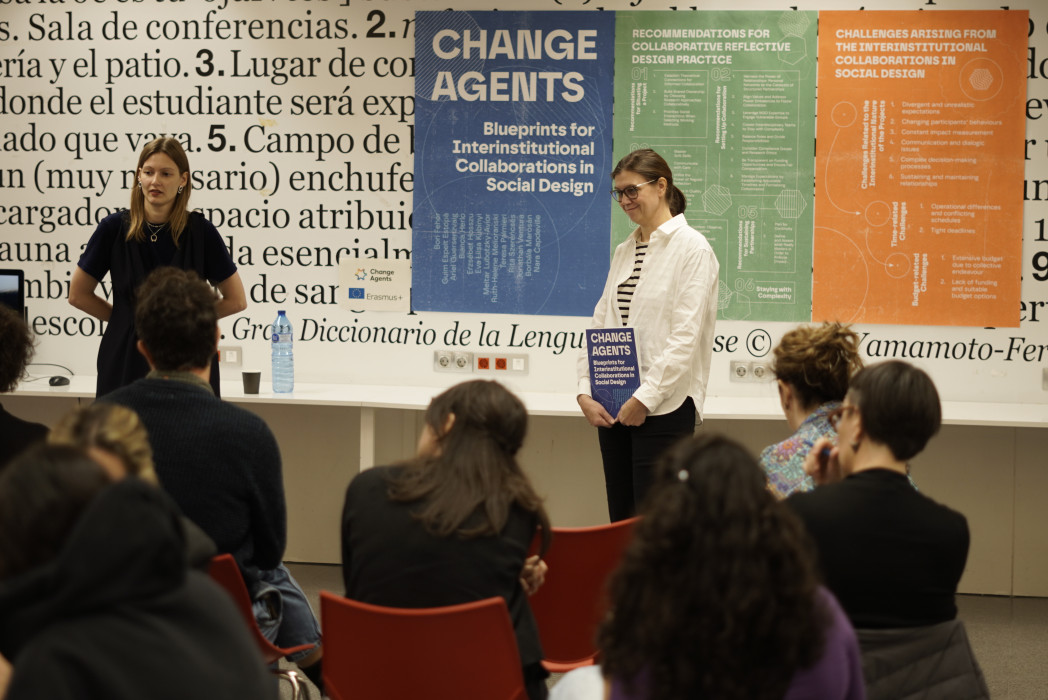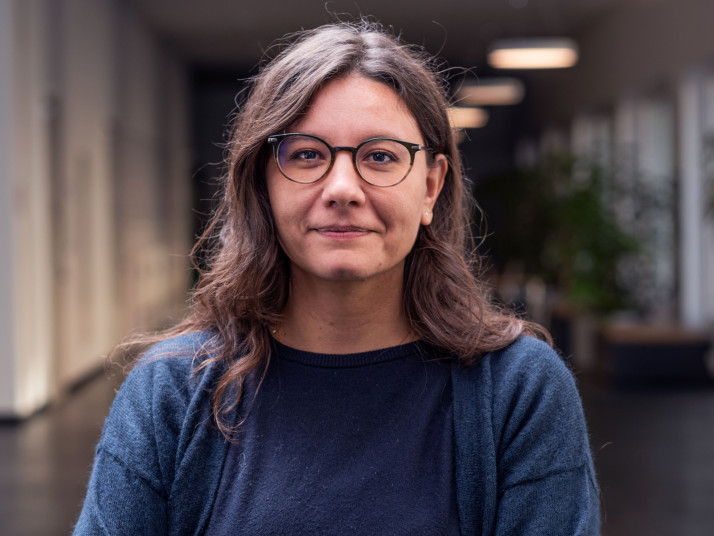Blueprint for social design. Bridging academia and civil society
By Arturo Zilli

Led by the Moholy-Nagy University of Art and Design (MOME), the Change Agents consortium includes -besides the Free University of Bozen-Bolzano - ELISAVA in Barcelona, the Estonian Academy of Arts, Berlin University of the Arts, and Shenkar College in Israel. This multinational effort resulted in Change Agents — Blueprints for Interinstitutional Collaborations, an open-access publication to support social design education and practice, and in turn drive meaningful societal impact, freely available to educators, students, and NGOs alike. The guide was unveiled recently at a one-day conference hosted by ELISAVA in Barcelona, where professionals from universities and civil society organisations gathered to explore innovative models for addressing societal challenges through community engagement and social design.
The conference marked the conclusion of the Erasmus+ Change Agents project launched in early 2023 connecting five universities and two NGOs to develop new methods and strategies for bridging the gap between the academic and non-governmental sectors. The collaboration was grounded in the Social Design Network, founded in 2020 by the Social Design Hub at MOME’s Innovation Center and a professor from Shenkar College of Engineering, Design, and Art in Israel to strengthen the knowledge base of social design. With contributions from renowned researchers, teachers and practitioners, it supports the advancement of relevant education and research across the globe. The Change Agents project brings together individuals with fieldwork experience and direct ties to the communities that will ultimately benefit from the outcomes of the design process. This link has largely been missing from the offerings of higher education institutions, making this initiative particularly significant.

The Erasmus+ Change Agents project has delivered Change Agents — Blueprints for Interinstitutional Collaborations offering methodological recommendations and practical guidance for professionals, educators, students, and civil society organisations engaged in social design involved in social design, as well as public administration and industry stakeholders collaborating with NGOs. It offers practical methods, strategies, and best practices to help NGOs and higher education institutions forge more effective and meaningful partnerships. The blueprint also outlines how design can effectively address the true needs of communities through projects focused on issues such as urban development, healthcare, deep poverty, education, and gender equality, while identifying the conditions necessary for positive change, the criteria for success, and whether participants have been genuinely engaged in the process. These insights are particularly crucial for any local initiative, as they aim to improve people’s quality of life.
Primarily intended for those ‘change agents’ committed to driving social transformation, this publication aims to enhance the quality of institutional and community-based design projects and introduce innovative educational approaches. It draws on a review of academic literature, methodological recommendations, and case studies, and serves as a practical guide for collaboration, addressing ethical considerations and offering specific recommendations for planning community-led design projects.
Lecturer and researcher at the Free University of Bozen-Bolzano, Teresa Palmieri, says: “The blueprints for inter-institutional collaboration will empower NGOs and higher education institutions to develop frameworks that ensure mutual benefits for both students and communities. These frameworks will facilitate ongoing collaboration, supporting the monitoring of community-based projects and the evaluation of their impacts – two critical elements for the success of social design initiatives in education.”
Besides Teresa Palmieri, PI of the Project, other professors and researchers from unibz were involved: Jacopo Ammendola, Sonia Cabral Matos, Secil Ugur Yavuz, Nicole Faiella, and Ksenia Obukhova.
More information and the publication are available here: https://socialdesignnetwork.org/project/erasmus-change-agents/
Change Agents is co-funded by the European Union’s Erasmus+ program.
Change Agents project partners are members of the Social Design Network.
Related people: Teresa Palmieri